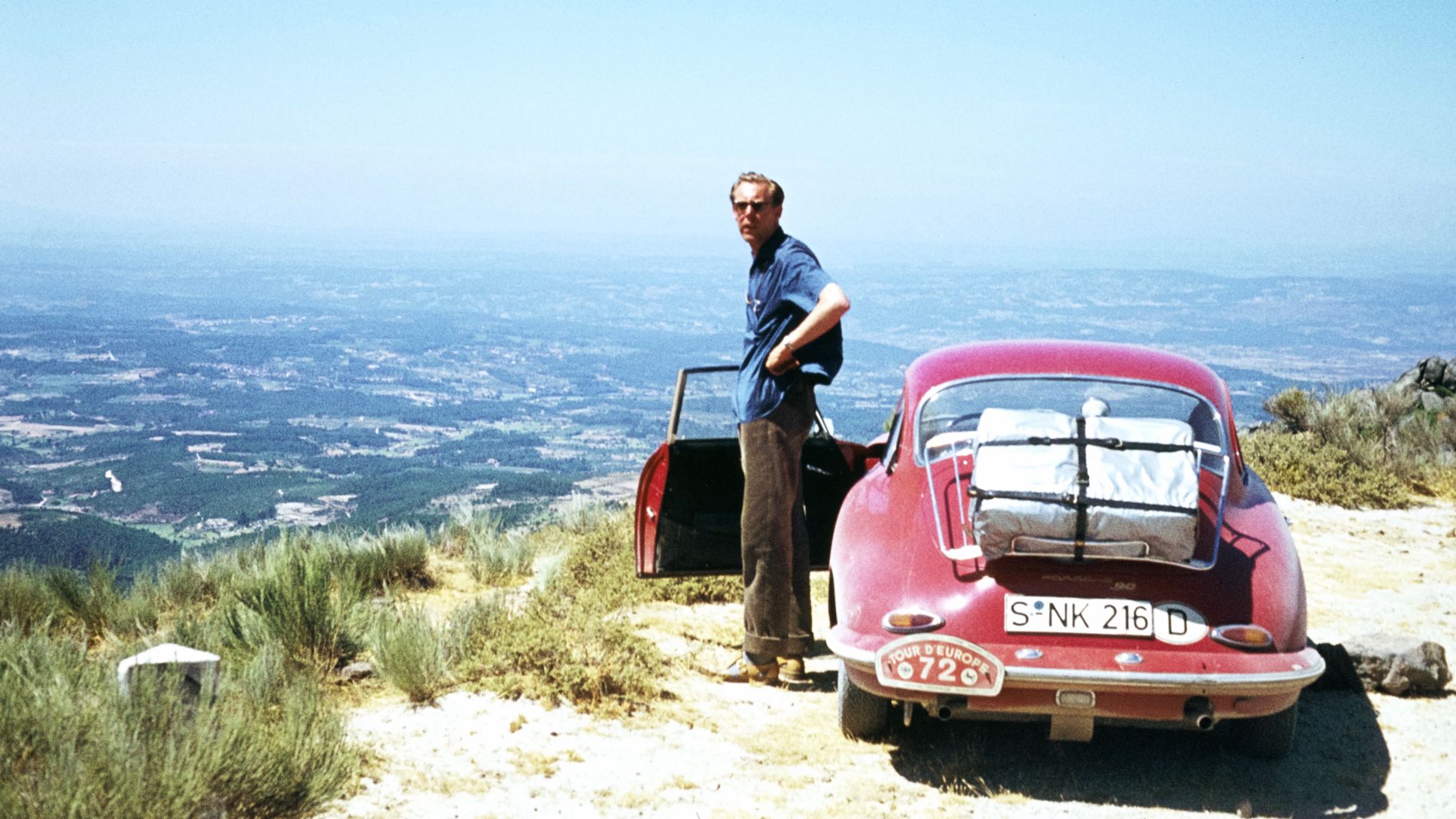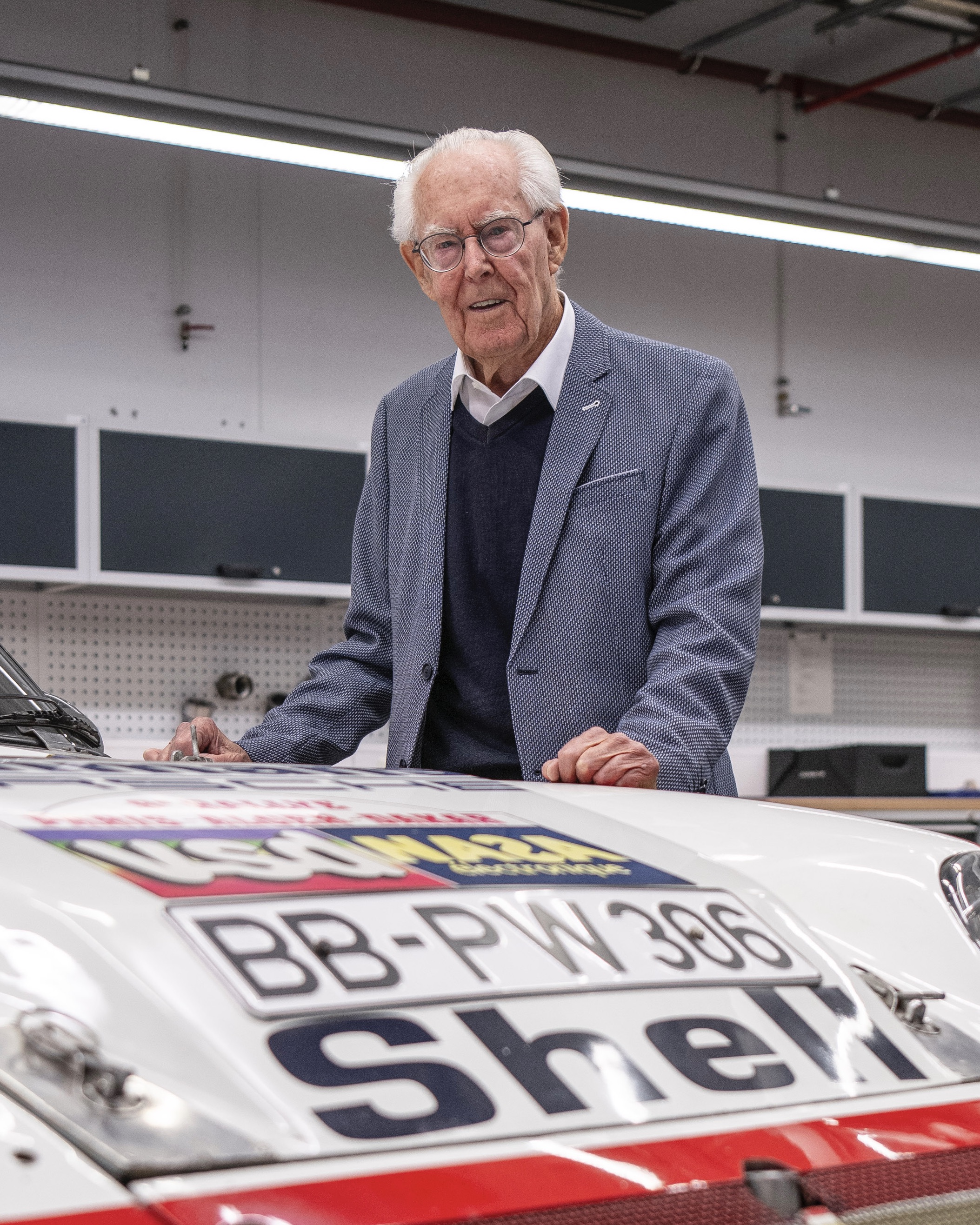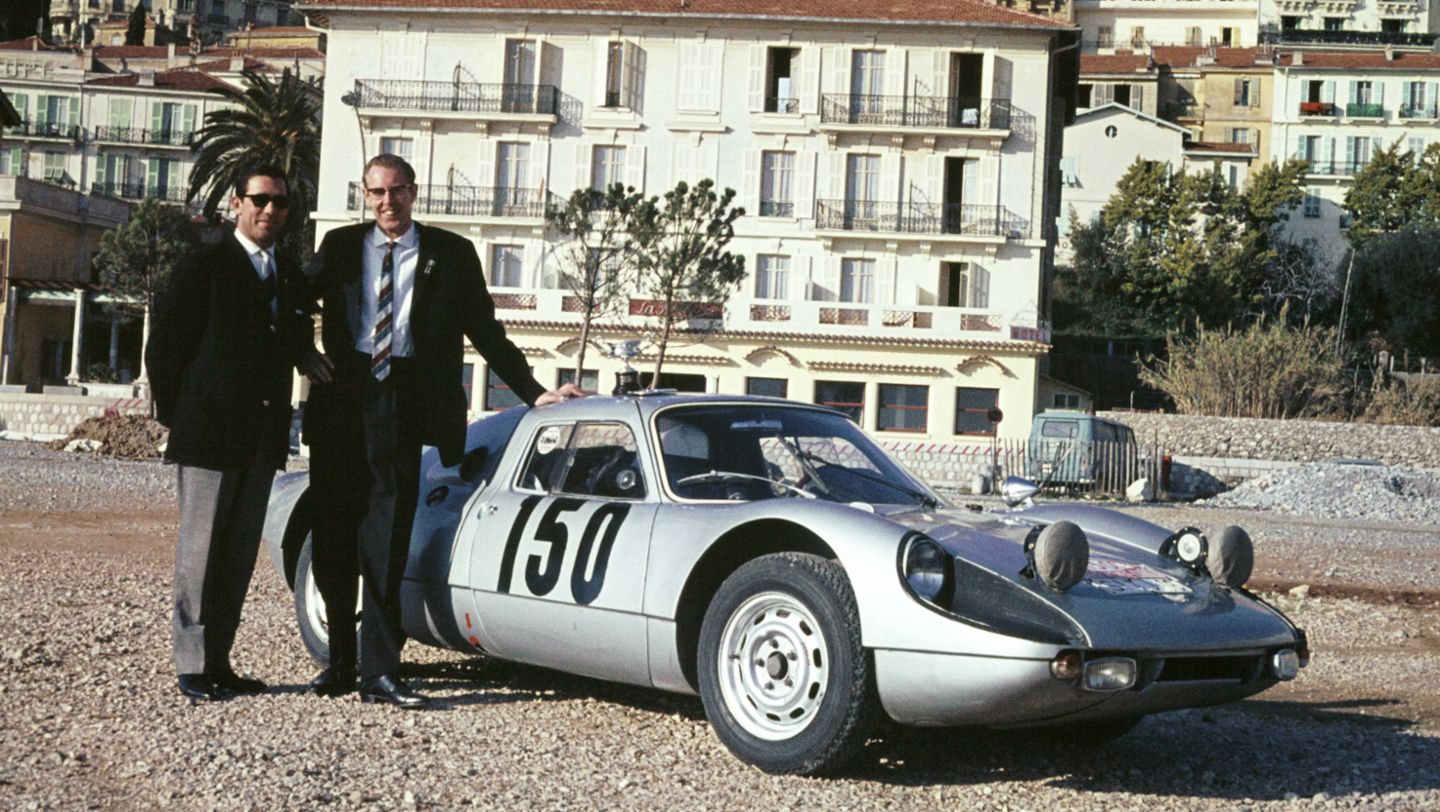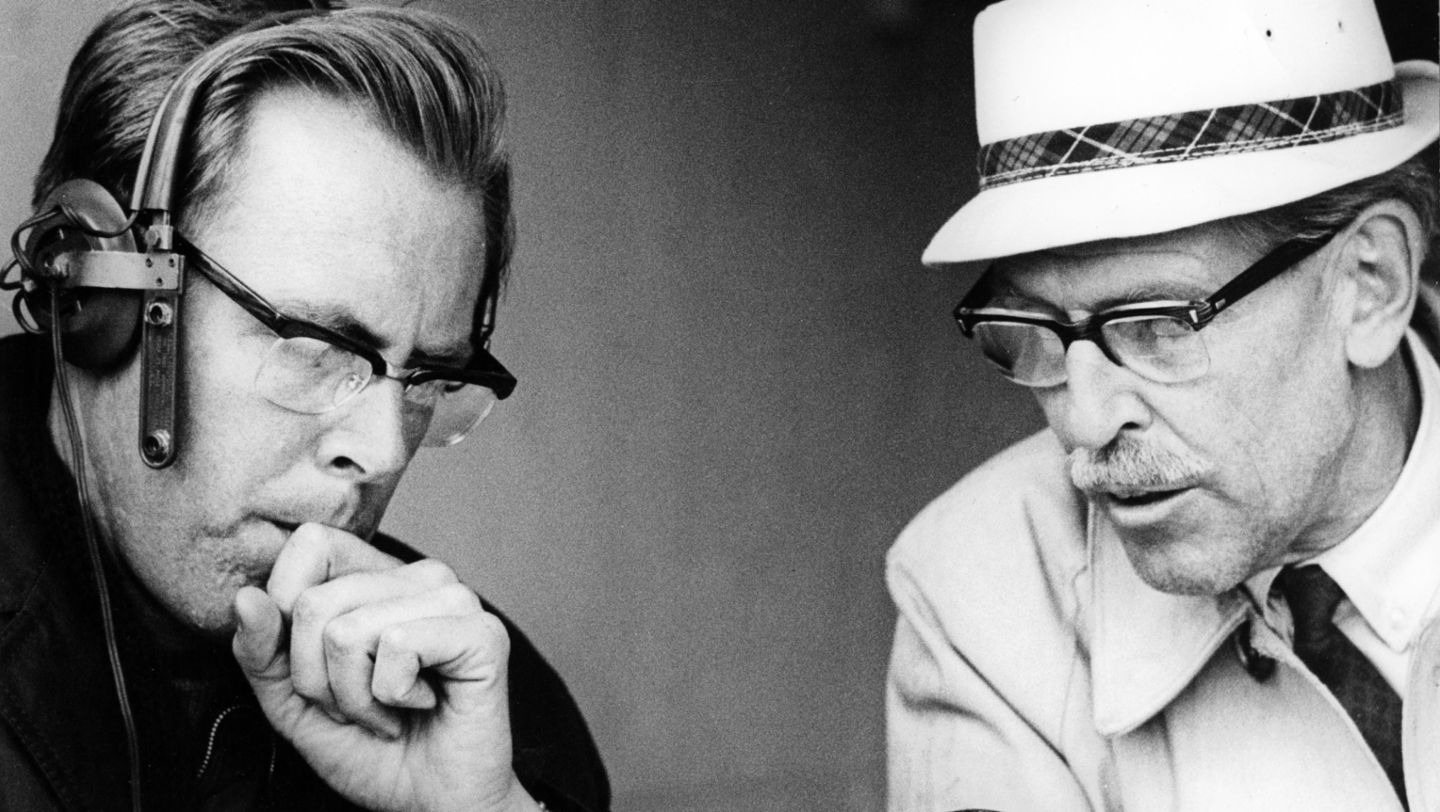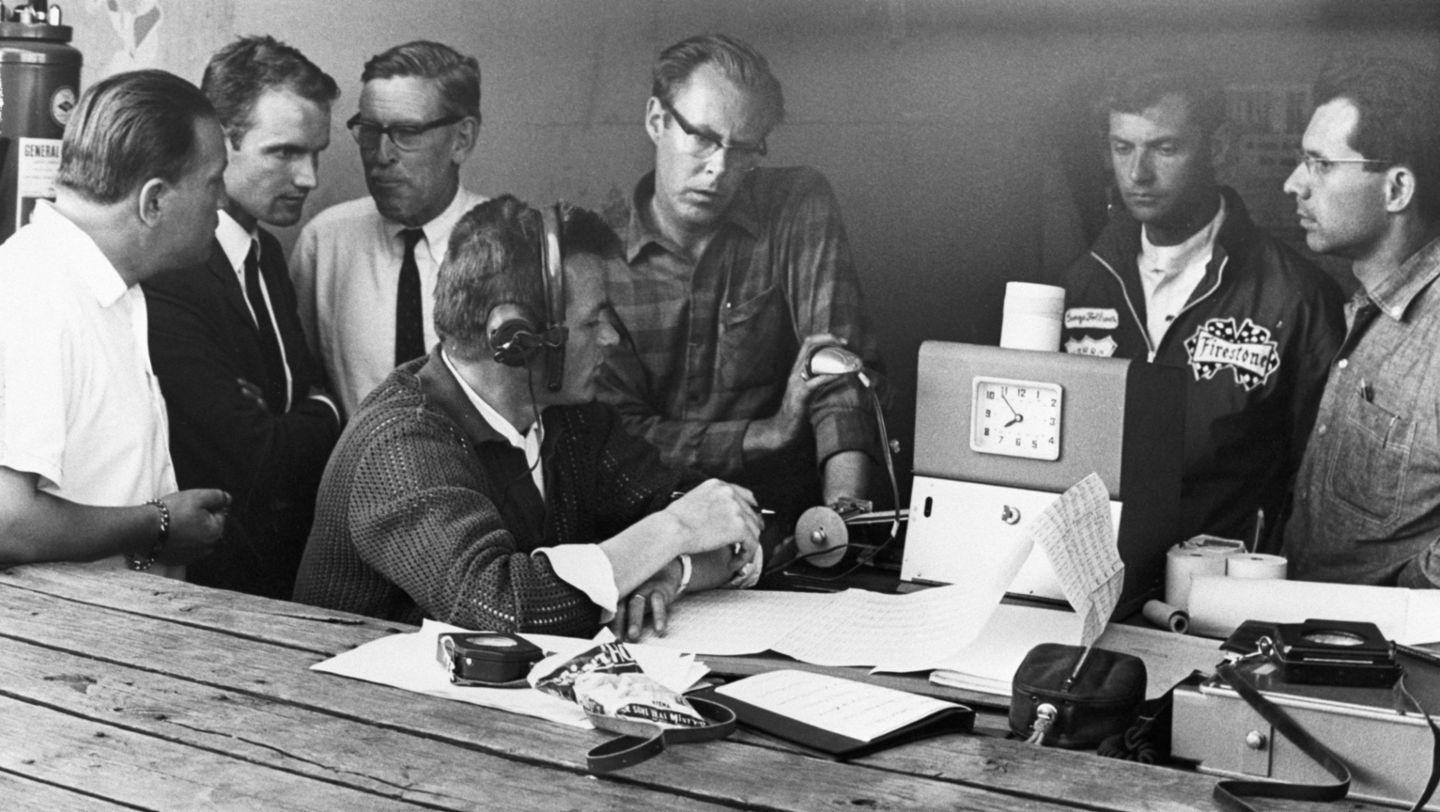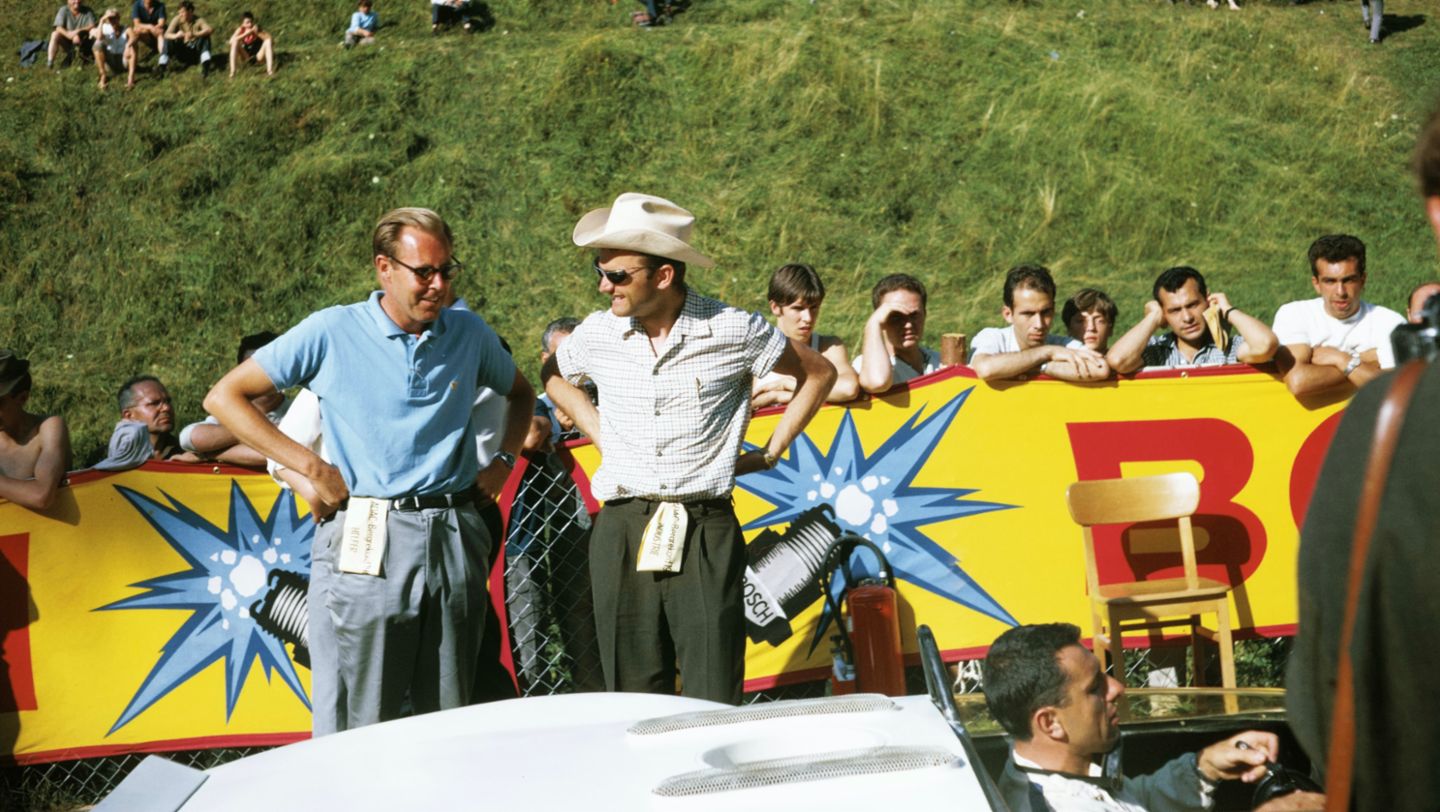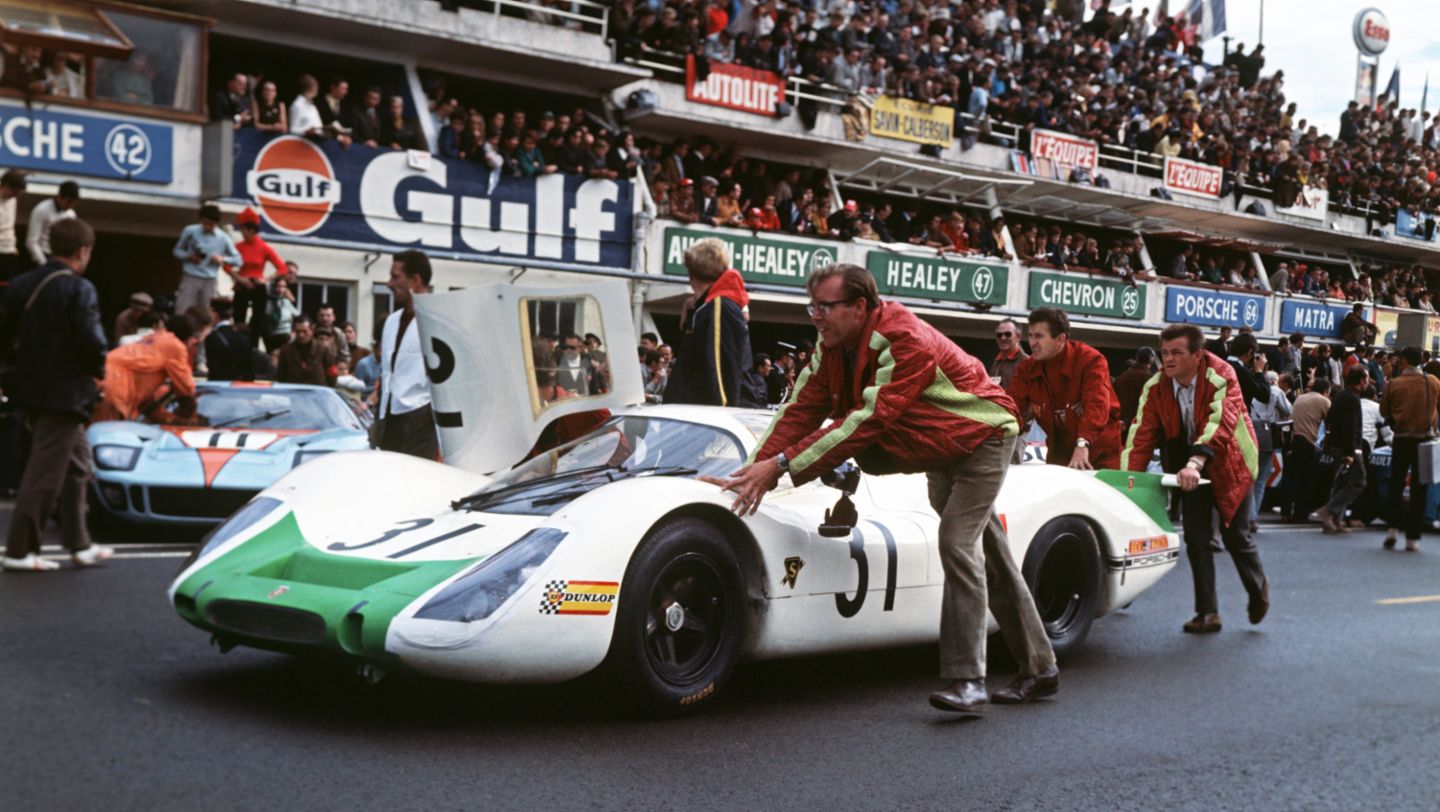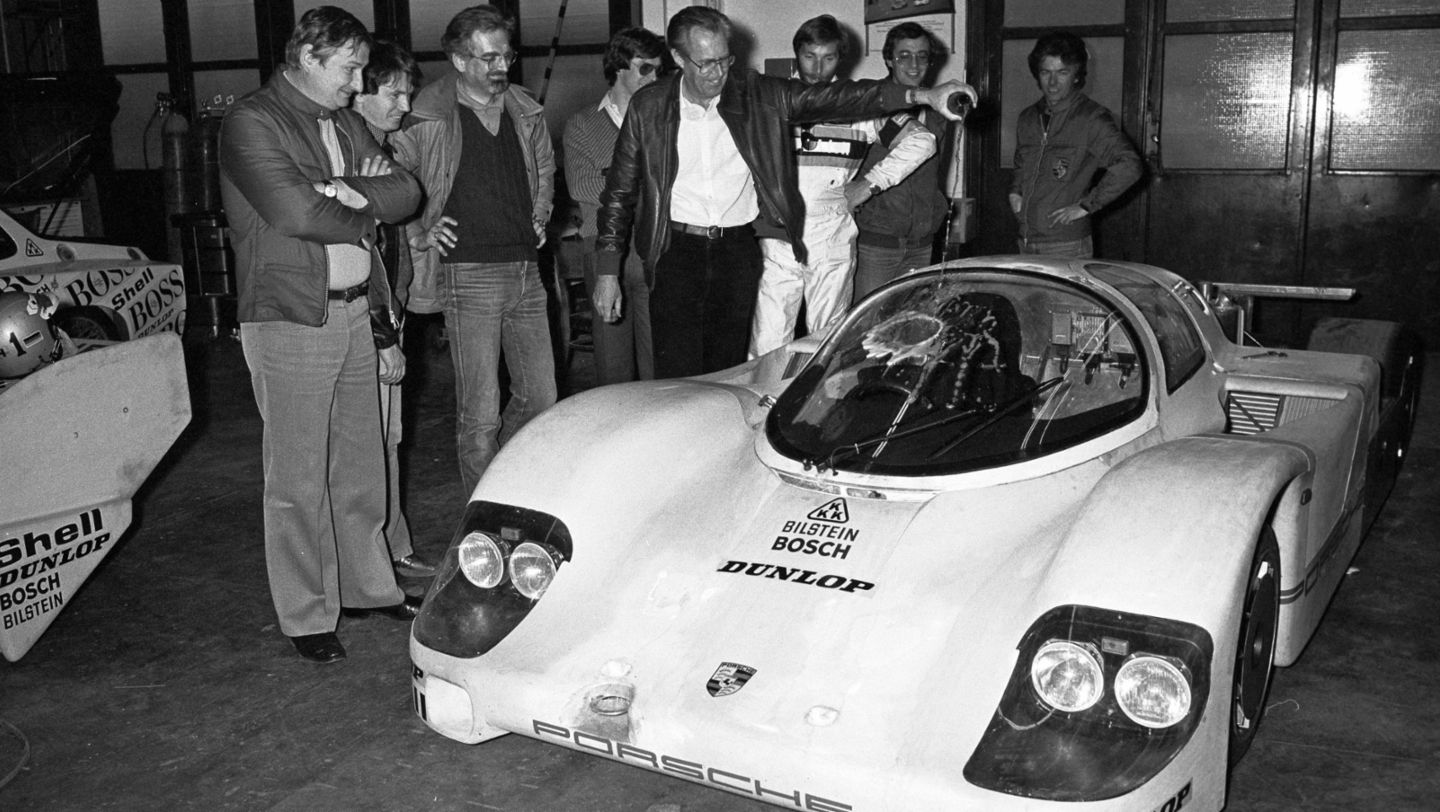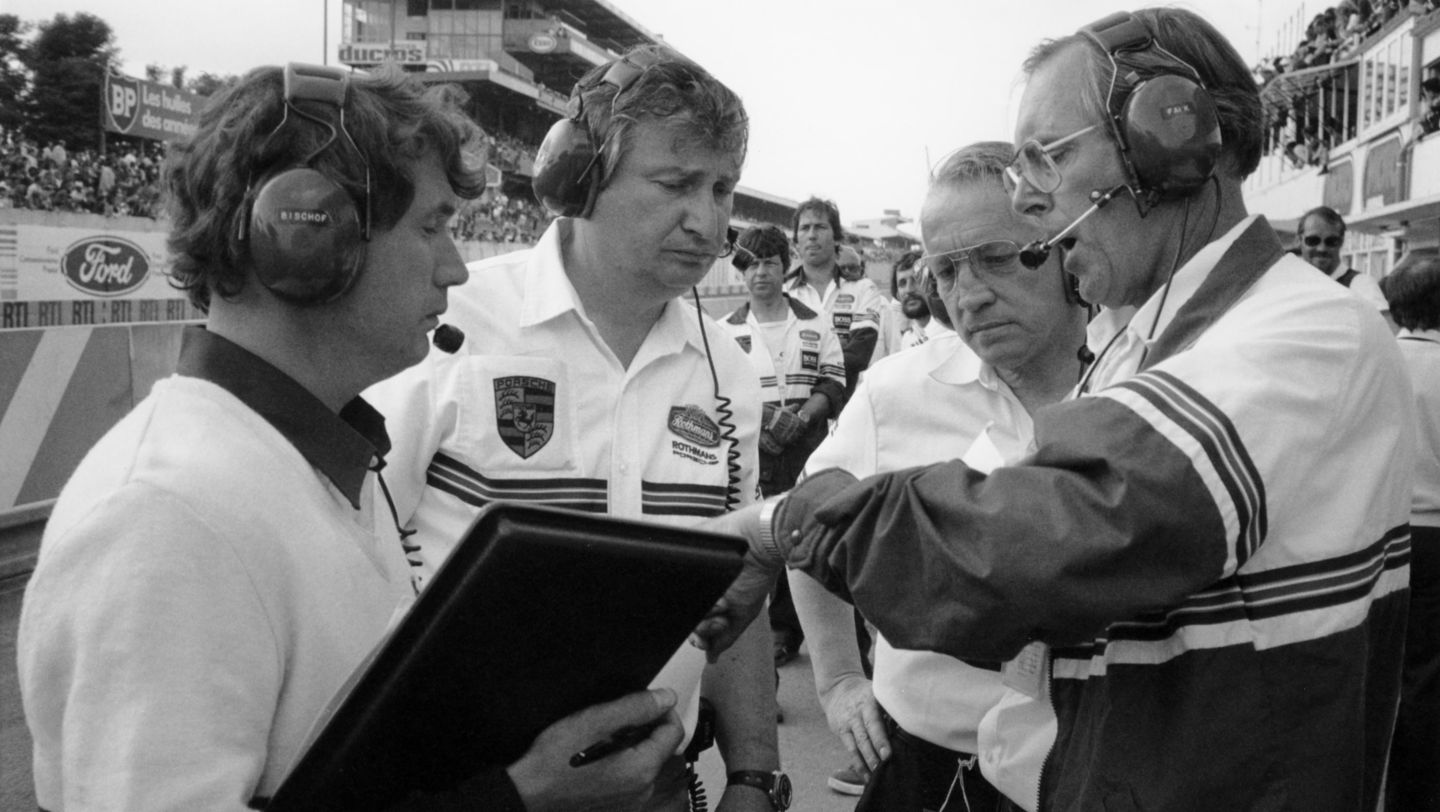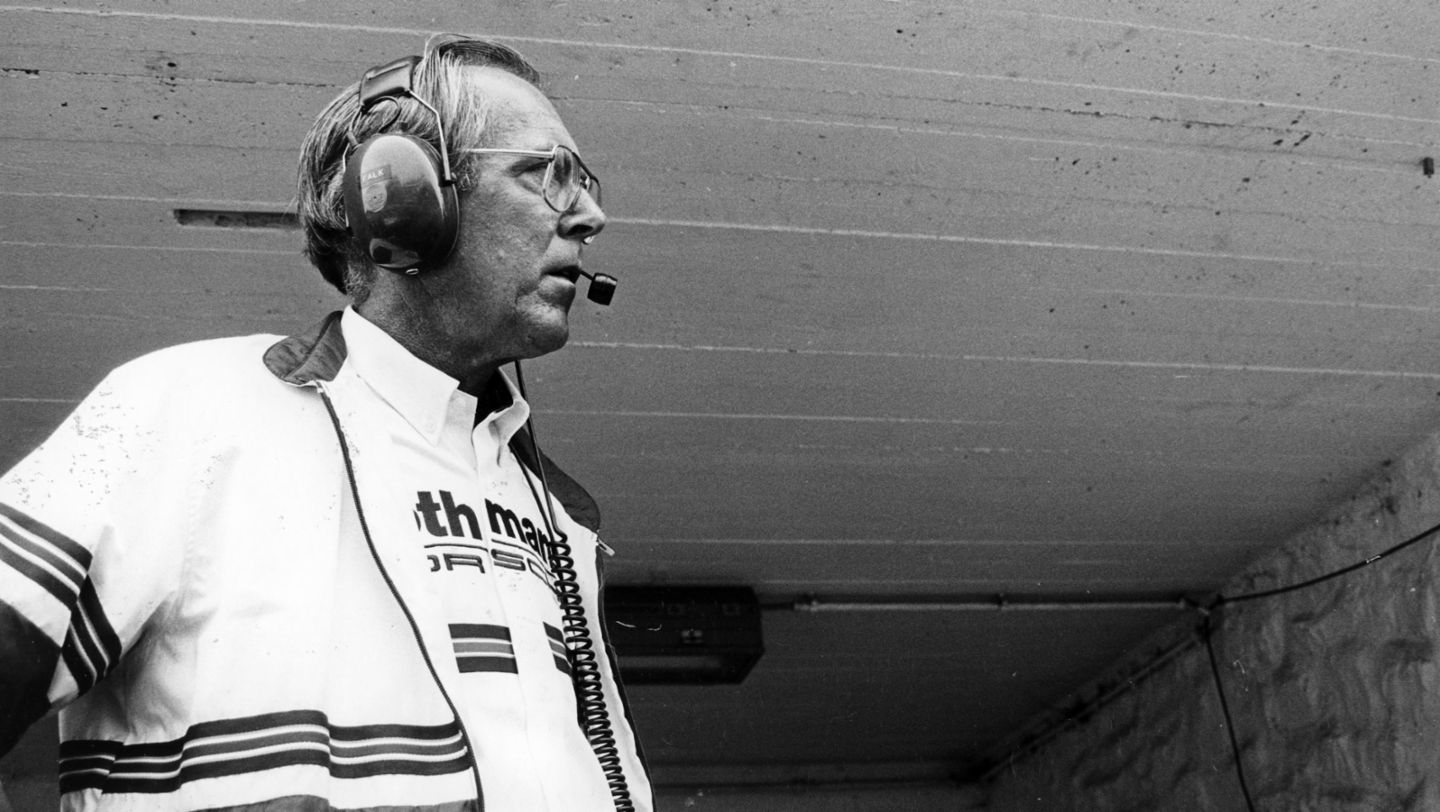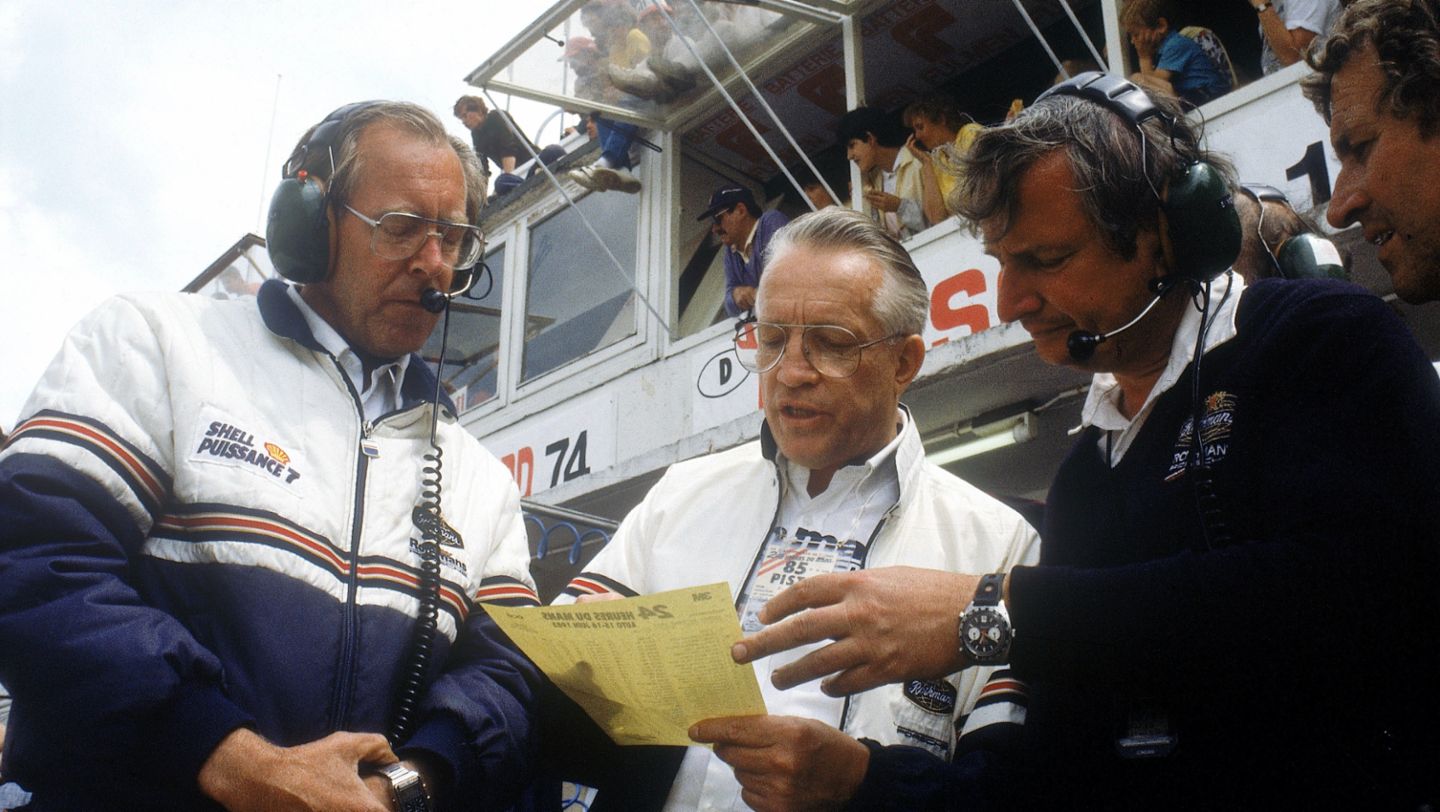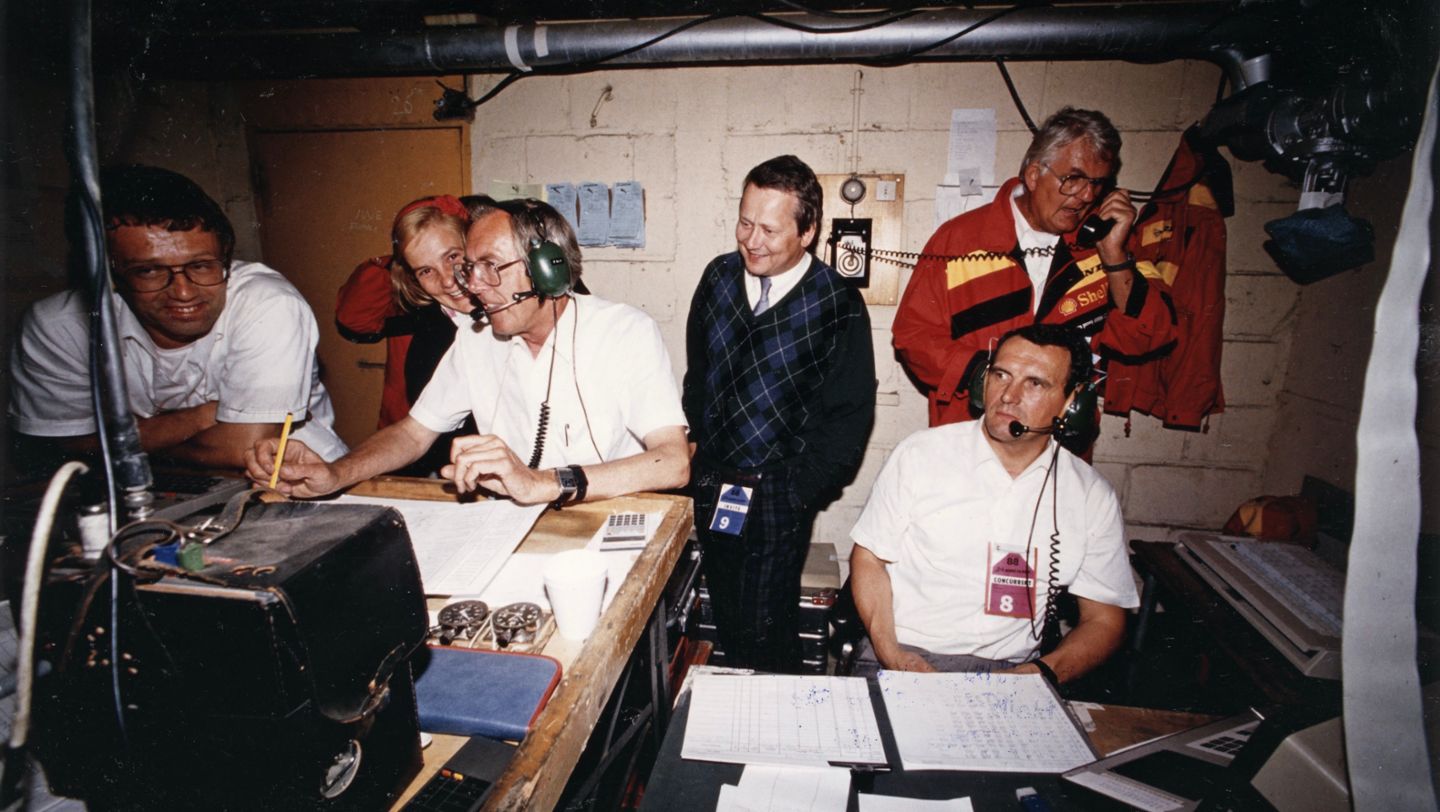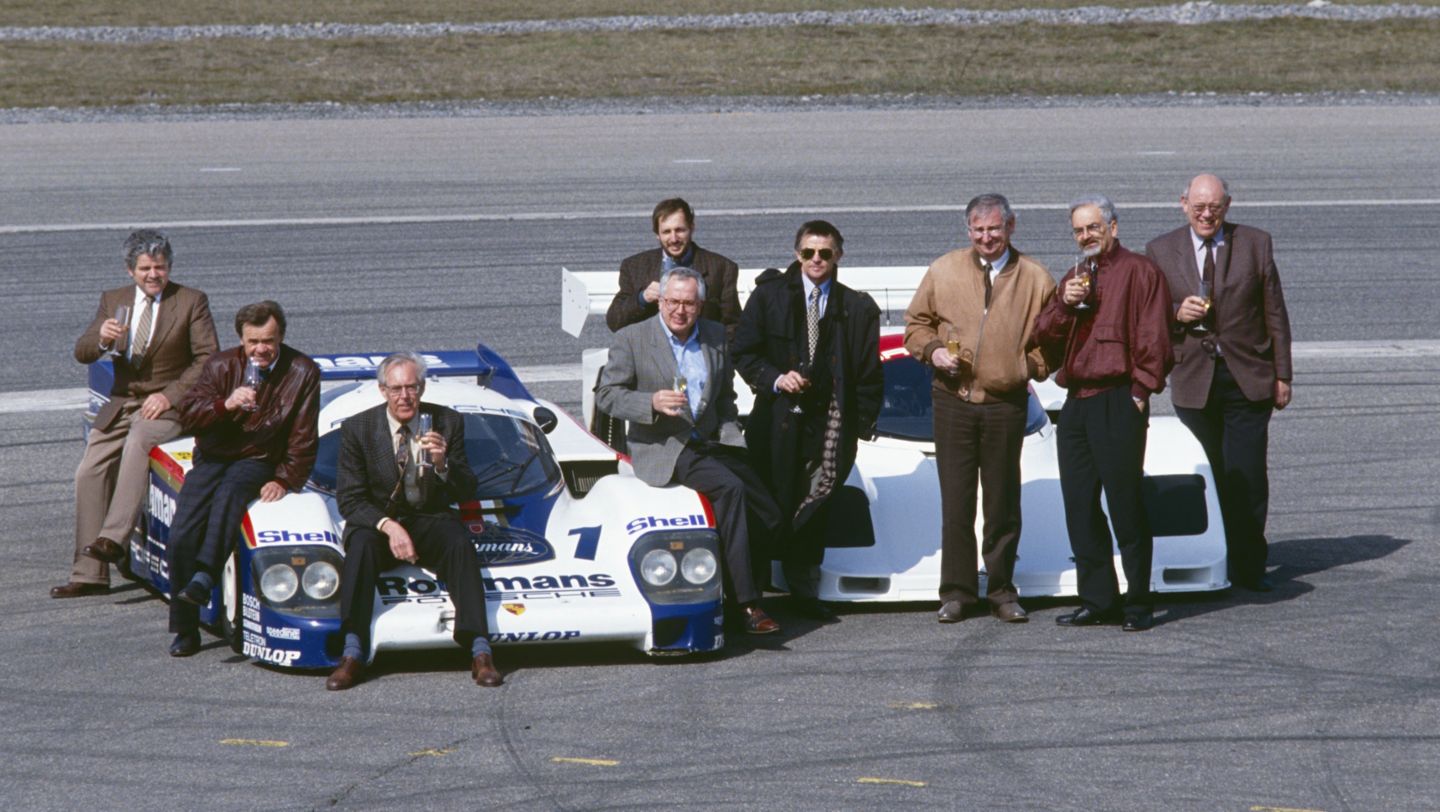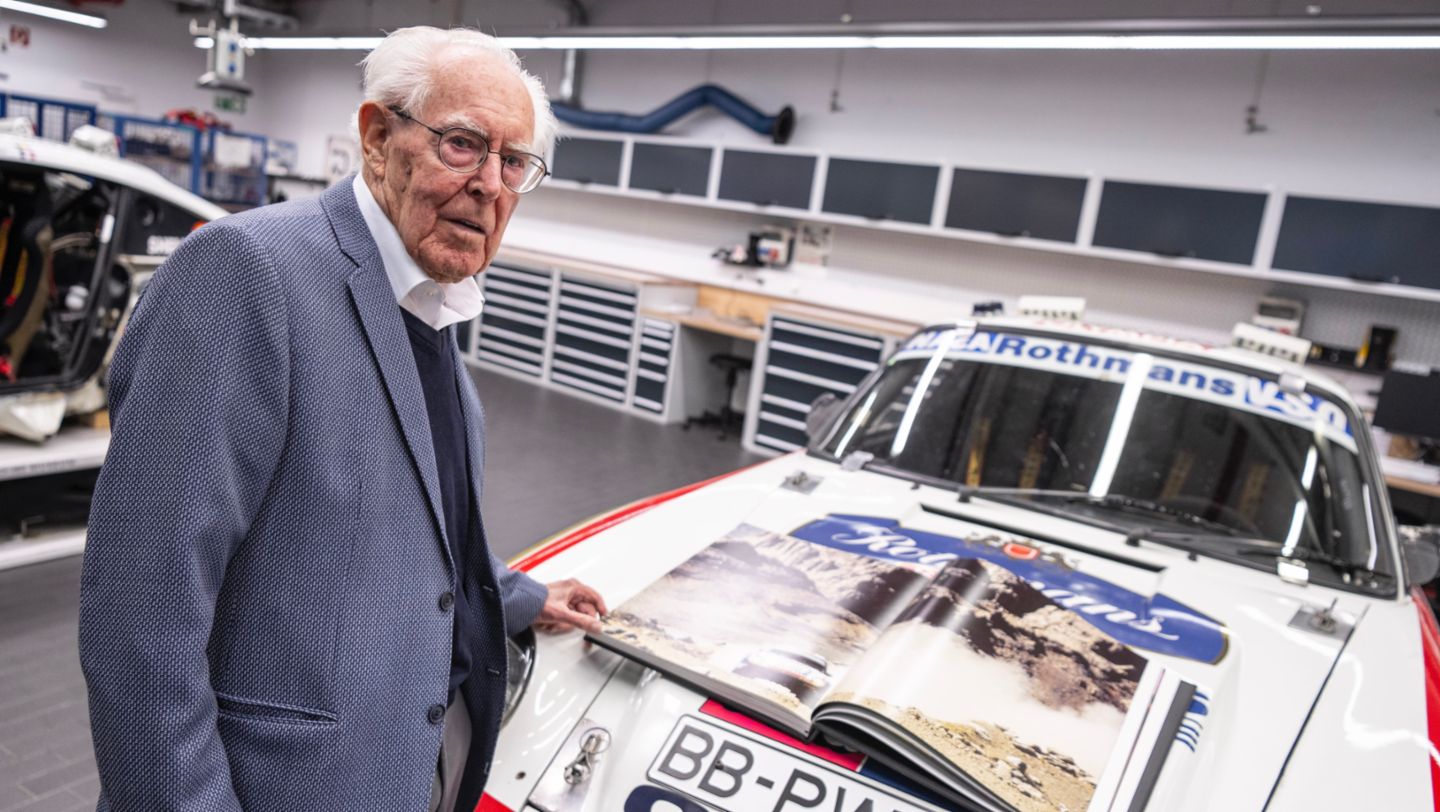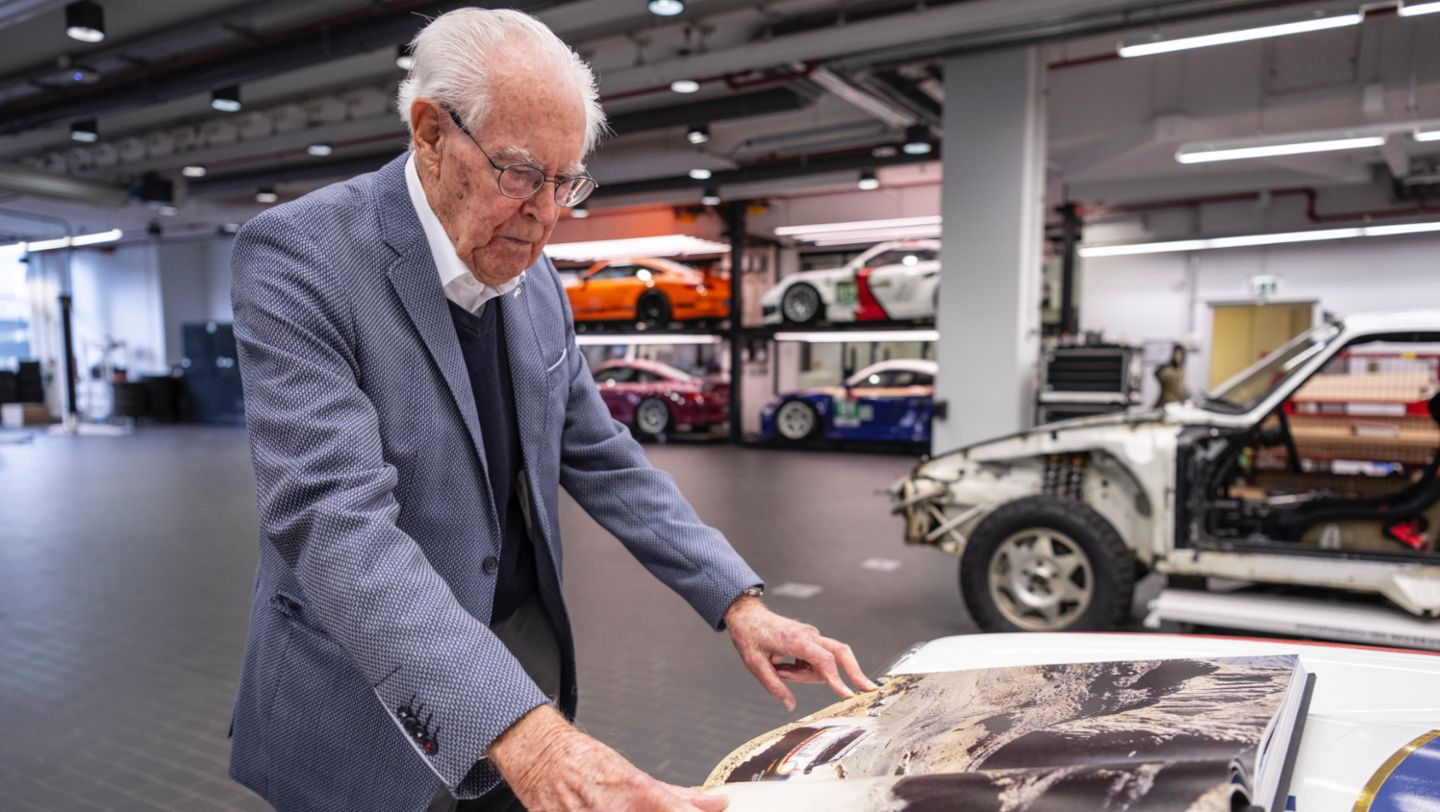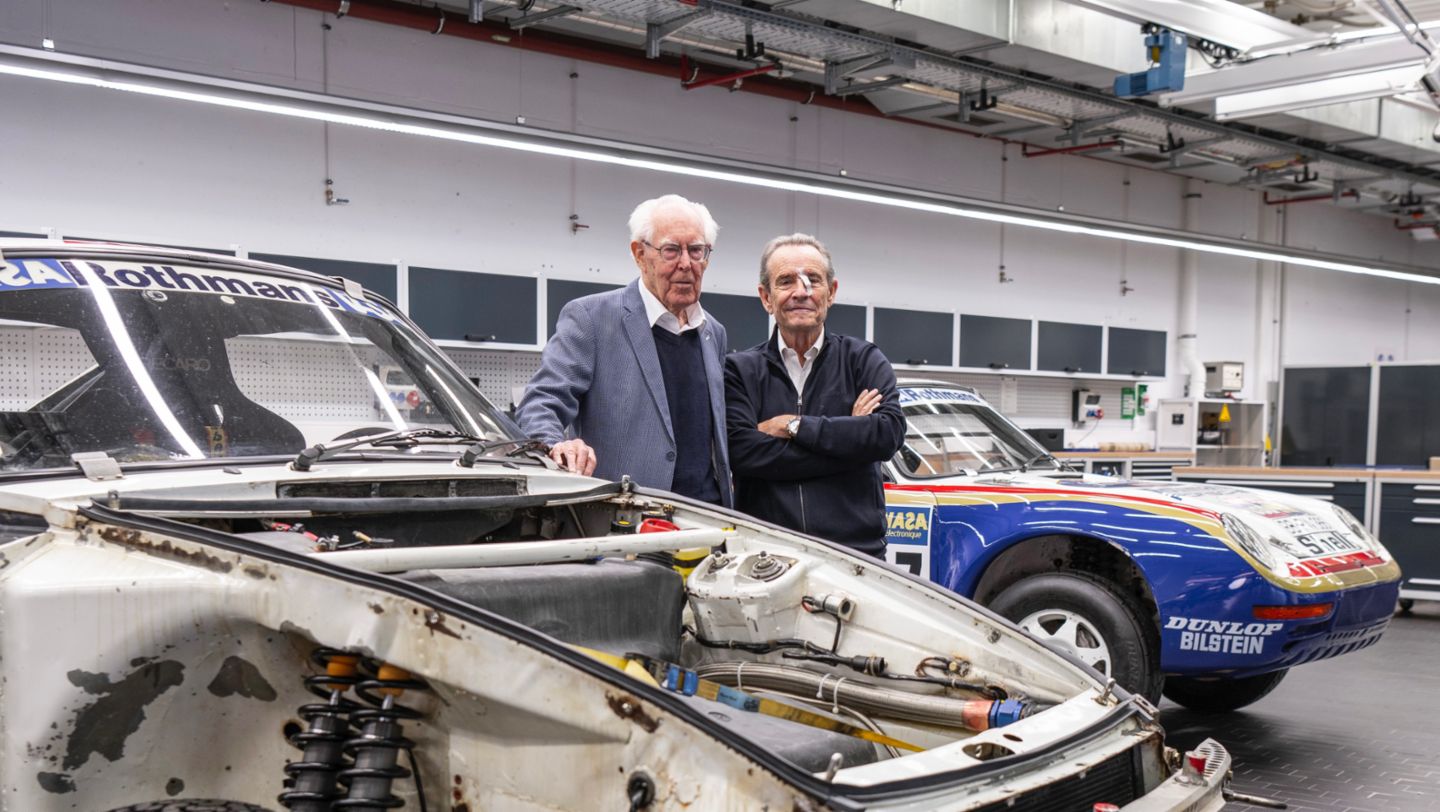“We extend our warmest congratulations to Peter Falk and thank him for his tireless work for the Porsche brand,” says Michael Steiner, Member of the Executive Board for Research and Development at Porsche AG. “He played a leading role in the development of legendary sports cars such as the Porsche 917. As racing director, our jubilarian was also responsible for the great success of the Porsche 956/962 in Group C, which is just celebrating its 40th anniversary.”
Peter Falk was born in Athens on November 27, 1932 as the son of an archaeologist. After an apprenticeship as a car mechanic he studied mechanical engineering, specializing in automotive technology. “From early childhood on I was interested in all forms of motion on land, from tricycles to bicycles to cars, so it was no wonder that I made my intense interest in the technology used for these vehicles into my career,” as Falk explains his greatest passion. When he was barely 18, he came third in a motorbike precision driving contest in the Northern Black Forest.
Six years later, he was seated alongside driver Alfred Kling in a Porsche in his first rally. Kling had his workshop next door and introduced Falk to motorsport. Together they proved victorious in their class. Then came victories in the Geneva Rally and the International German Rally in 1957, along with sixth place in the Liège-Brescia-Liège road race.
Co-pilot to Herbert Linge
In 1959 he joined Porsche as an engineer, one of only ten employees in the test driving department. 1964 he started working in pre-series and racing support, where he got the 911 on the track, among others. At the Monte Carlo Rally of 1965, he was co-pilot to Herbert Linge in the 911 2.0. “I spoke into a thick plastic tube that went straight into Herbert’s helmet. This speaking tube worked perfectly,” as Falk recalls the precursor to the intercom system of today that he developed. Even during that first race with the 911, Porsche was using motorsport for the development of series-production road cars. The duo finished the Rally in fifth place overall.
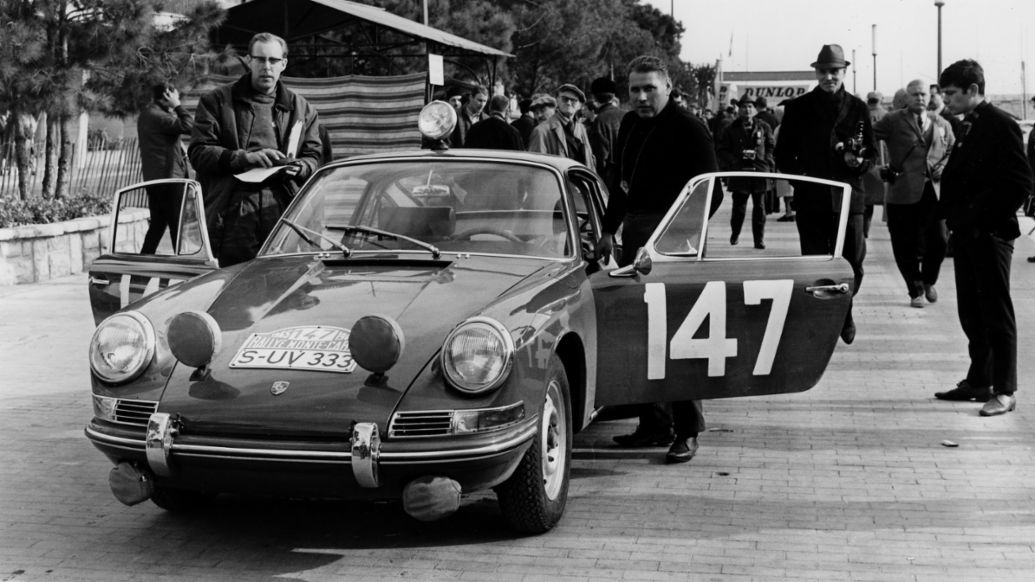
In the years that followed, many Porsche cars – from the 906 to the 917 – were built under the aegis of Falk as head of the pre-series and racing department and allowed the sports car manufacturer to make a name for itself in the top class of international motorsport. From 1973 to 1981, he was test manager in the development of the 911, 924 and 928 series. Falk was responsible for the body, gearbox, road testing and endurance run areas.
Superb theorist and practitioner
Peter Falk is considered to be a superb theorist and practitioner who, as head of race car development and as racing director in the 1980s, led many Porsche cars to unforgettable winning series. For example, he is responsible for the successful era that the 956 and 962 Group C cars enjoyed. With seven overall victories at Le Mans and 11 world championship titles, this racing car project is one the most successful in the company’s history. The sports car manufacturer had its greatest successes in motorsport under Falk’s leadership. Two overall victories at the Paris-Dakar Rally in 1984 and 1986 were further highlights of his career.
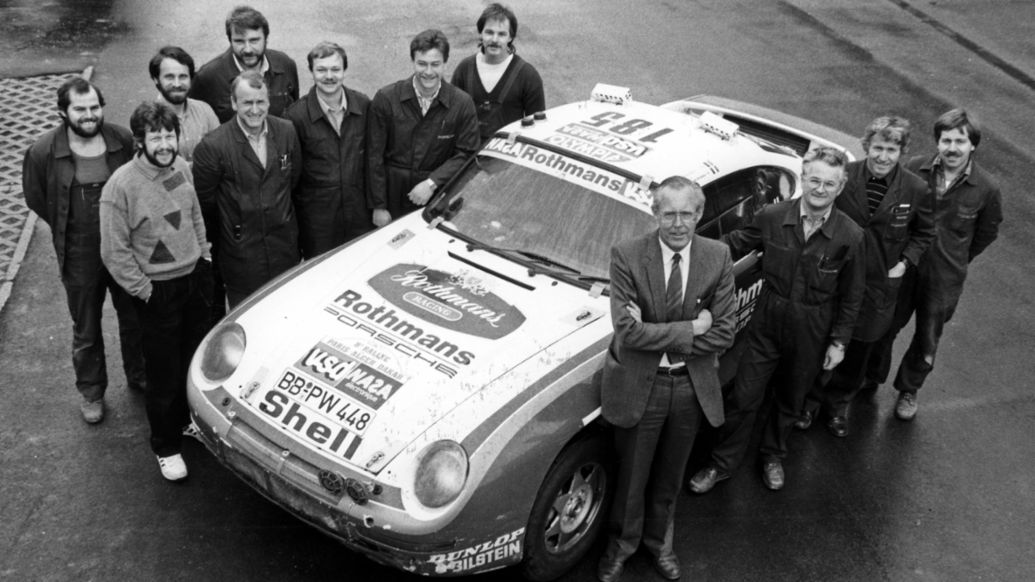
“I was always a rally fan, someone who isn’t only able to drive on nice asphalt roads. It was always important to me that a car performs well off the road too,” says Falk, a self-confessed all-wheel fan. Together with his team and technician Roland Kussmaul, Falk developed the 911 Carrera 3.2 4x4 for the Paris-Dakar Rally in less than one year. And with success, as this was the first time a sports car won the toughest long-distance race in the world. From 1989 on, Falk was head of chassis development and oversaw pre-development and development of the Boxster and the 993 and 996 generations of the 911.
Part of the Porsche legend
“I’m a great admirer of Peter Falk, his calm and prudence,” says Walter Röhrl, who drove and won the Ennstal Classic vintage car rally with him in 1997. “I couldn’t conceive that someone could prepare for something in such extreme detail. He had his computer with him and basically told me every 100 meters that I was going a bit too fast or too slow – and this over a distance of 500 kilometers,” the two-time rally world champion recalls. “I wish him continued health and the same calm temperament. He is one of the people on whom the Porsche legend was built.”
Racing driver Hans-Joachim Stuck, who joined the Porsche works team in 1985, also has nothing but praise for his treasured co-traveller: “Peter Falk taught me so much about respect and discipline. Without him, my life in motorsport would have been very different. He is one of the best racing directors I had the honor of working with. I wish him nothing but the best.”
Norbert Singer, former racing engineer at Porsche, was hired by Peter Falk in 1970. Falk was his direct superior for many years, and they maintain a very good relationship to this day. “He gave us a free hand in the development of the 956/962, let us turn our ideas into reality, and always trusted us. He took full responsibility for everything we did. Only much later did I realise how special that was,” says Singer. “I wish him the best of health and many more years to enjoy his life.”
Falk retired in 1993 but has maintained a close relationship with the company ever since. For many years he was at the disposal of the Porsche Museum as a contemporary witness and interviewee. He has also participated in the organisation of the occasional vintage car rally.
